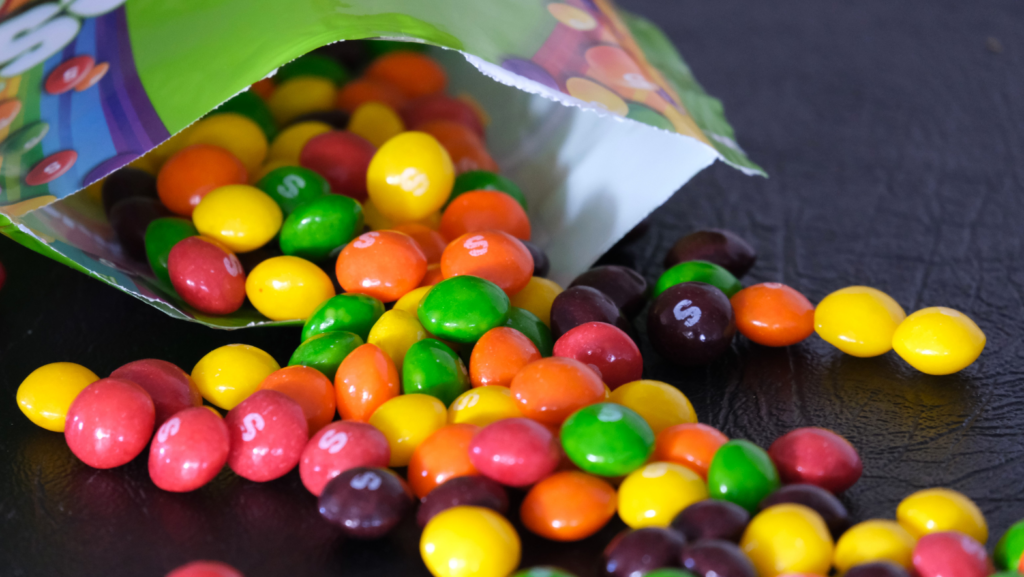California is the first US state to implement ‘Skittles ban’
 California shakes up the snacking game with its so-called “Skittles ban” but don’t fret as these rainbow-colored goodies won’t be off grocery shelves just yet.
California shakes up the snacking game with its so-called “Skittles ban” but don’t fret as these rainbow-colored goodies won’t be off grocery shelves just yet.
The Golden State moves ahead of other states in taking a stand against additives present in candies, cereals, and sodas.
On Saturday, October 7, Gov. Gavin Newsom signed the ‘Skittles ban,’ also known as Assembly Bill 418, into law, which says goodbye to potassium bromate, brominated vegetable oil, propylparaben, and Red Dye 3. These are found in almost 12,000 food items in the US, all without US FDA approval, according to the Environmental Working Group.
“Californians trust that the food products they consume are safe. I appreciate the author and stakeholders for working on amendments, which advance our shared public health objectives while maintaining consumer choice,” said Newsom.

This law is a “positive step forward,” Newsom said in a signing message. While he is concerned about public health, Newsom wants to preserve consumer’s right to choose. The ban will commence in 2027, which is enough time for companies to clean up and remove the harmful chemicals.
For California lawmakers, this “Skittles ban” isn’t news. Just last February, Democratic Assemblyman Jesse Gabriel of Sunny Woodland Hills passed a bill called Assembly Bill 418 (AB 418) that would ban processed foods containing dangerous and toxic chemicals in California.
You may also like: California beach closed until 2030 over sea lion harassment
It intends to protect consumers from harmful chemicals in food, including the aforementioned ingredients, which the California Safety Act deems as health hazards.
California now become the First U.S. State to ban Skittles 📈👎🏽 pic.twitter.com/Mt4LQ96Sk7
— Raphouse TV (RHTV) (@raphousetv7) October 10, 2023
While most additives make our food look fresh and taste better, Red Dye 3, for instance, which has had a cosmetics ban in the US since 1990, has caused cancer in animals, though further studies are still needed on its human effects.
The ‘Skittles ban’
If you’re wondering why it was (misleadingly) named ‘Skittles ban,’ it’s because there was an initial version of the legislation targeting titanium dioxide, an active coloring agent found in M&Ms, Kraft fat-free shredded cheddar cheese, and, well, Skittles.
Last year, a lawsuit was filed against Skittles manufacturer, Mars Inc., claiming they were “unfit for human consumption” due to its titanium dioxide content. Thankfully, it was removed when the legislation was amended in September.
California will officially ban Skittles and other candies from the state starting 2027 as Governor Gavin Newsom signed bill AB 418, also known as The California Food Safety Act.
The bill targets food products that contain the substances brominated vegetable oil, potassium… pic.twitter.com/zzLGp3vyel
— Daily Loud (@DailyLoud) October 10, 2023
How will the ‘Skittles ban’ impact residents?
While consumers might be wondering (and lamenting) if Skittles would be off grocery shelves, advocacy groups predict this law won’t just change manufacturing in California but also the entire US.
Companies won’t produce two versions of the same product after all. It’s highly impractical to produce a California-specific product and another one for other US states without the ban, according to Consumer Reports.
California isn’t the only state targeting these same four chemicals, New York might follow suit with a similar bill.

